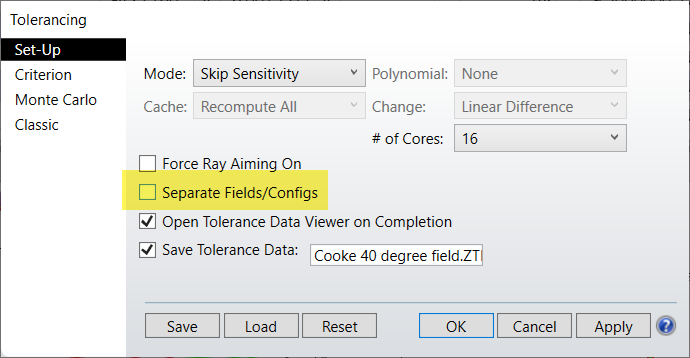Hello,
I’d like to know how to output a set of Zernike values when running Tolerancing when I have two separate configurations?
Setup: There are two wavefronts being evaluated in each configuration. Tolerancing is setup to run a User Tolerance Script. The TSC loads a merit function with criterion for both configurations. There is a setting under Tolerancing→ Criterion that allows for the configuration to be set to “All”, “1/2” and “2/2”. The TSC computes the standard Zernike terms within and reports them to an output TXT file.
Issue: Running in any CFG mode produces the nominal system output and only one evaluation of the MIN/MAX tolerance. If running in “All” mode, the Zernike values for CFG 1 are reported, same as running in “1/2” mode. Running in “2/2” modes, the Zernike values expected for CFG 2 are reported.
Question: Is there a trigger for the TSC or a setting such that Zernike values for both configs are output during a single tolerancing run? Given the TSC is called at each iteration in Tolerancing, I’m not sure how the stack works or how to trigger an output for a given CFG.
Thanks!




